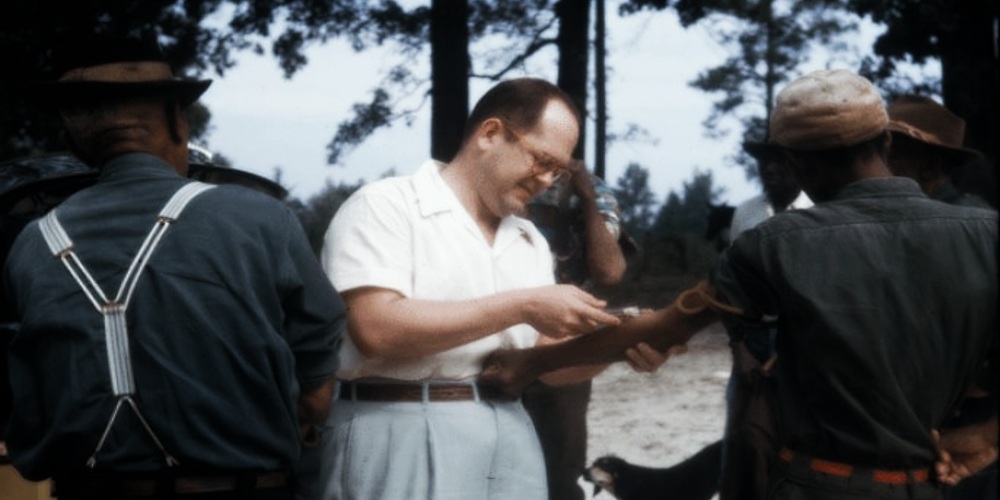Editor’s Note: Stop the presses! The fat lady is about to sing. For the first time in the history of this publication, we are going to post a story from… wait for it… MSN. Granted, it wasn’t written by them. They pulled the story from some publication that I can’t actually source since the story doesn’t appear to be on their site, but that’s not important.
Thankfully, I didn’t have to go to MSN to get this list put together. Principia Scientific International did the honors, so I’ll link to them instead of to a corporate media site. Here’s their post…
In 2013, Edward Snowden, a former National Security Agency (NSA) contractor, leaked classified documents that revealed the extent of the U.S. government’s surveillance programs.
The documents showed that the NSA was collecting phone records of millions of Americans and spying on foreign governments and individuals. Snowden’s revelations sparked a global debate about government surveillance and privacy rights.
This wasn’t the first or last conspiracy theory that was revealed to be true in the end.
Operation Mockingbird
The CIA’s covert operation to control the media by planting stories and manipulating the news was exposed in the 1970s.
The Lavon Affair
In 1954, Israeli agents planted bombs in US and UK targets in Egypt to frame Muslim Brotherhood militants and damage US-Egyptian relations. The operation became known as the Lavon affair after the Israeli defense minister, Pinhas Lavon, who was forced to resign.
CIA Assassinations
The CIA was involved in multiple assassinations of foreign leaders, including Patrice Lumumba of Congo and Salvador Allende of Chile.
COINTELPRO
The FBI’s Counterintelligence Program was aimed at disrupting and discrediting political organizations in the US. It included illegal surveillance, infiltration, and harassment of civil rights leaders and anti-war activists.
The Tuskegee Syphilis Experiment
From 1932 to 1972, the US Public Health Service conducted an unethical medical experiment on African American men with syphilis, without their knowledge or consent.
The Iran-Contra Affair
In the 1980s, the US sold weapons to Iran and used the proceeds to fund Contra rebels in Nicaragua, despite a congressional ban on such funding.
Operation Gladio
A secret NATO network of anti-communist “stay-behind” armies operated in Europe from the 1950s to the 1990s. It was involved in numerous terrorist attacks and assassinations.
Watergate
The Watergate Scandal is considered one of the most significant political scandals in US history. The scandal involved the Nixon administration, which was accused of breaking into the Democratic National Committee (DNC) headquarters in the Watergate complex to spy on their political opponents. The scandal eventually led to Nixon’s resignation and several White House officials being indicted and convicted.
Operation Northwoods
Operation Northwoods was a proposed false flag operation by the US government in the 1960s to stage terrorist attacks against US citizens to justify a war with Cuba. The plan was rejected by then-President Kennedy, but it was later revealed through declassified documents.
The Iran Hostage Crisis
The 1979 hostage crisis at the US embassy in Tehran was initially dismissed by some as a staged event to demonize Iran. However, it was later confirmed to be a genuine crisis.
The BCCI Scandal
The Bank of Credit and Commerce International was a corrupt bank that laundered money for drug cartels, terrorists, and corrupt politicians. Its downfall in the 1990s exposed widespread corruption in the banking industry.
Prohibition Poisonings
From 1920 to 1933, the U.S. government put a ban on all alcoholic sales due to the ethical and moral corruption it was hypothesized to cause. During this period, the government began adding toxic chemicals to industrial alcohol to discourage people from drinking it.
The chemicals used included things like kerosene, gasoline, and formaldehyde, which led to thousands of deaths and illnesses. Despite the risks, the government continued to poison alcohol until Prohibition was repealed in 1933.
The Business Plot
In 1933, wealthy businessmen allegedly planned a coup to overthrow President Roosevelt and install a fascist government. The plot was exposed by Marine Corps General Smedley Butler.
The Iran-Contra Drug Trafficking
The Contra rebels funded by the US government were involved in drug trafficking to finance their activities. The CIA was aware of the drug trade but turned a blind eye.
Operation Ajax
The US and UK orchestrated a coup in Iran in 1953 to overthrow Prime Minister Mohammad Mossadegh, who had nationalized the country’s oil industry.
MK-Ultra
MK-Ultra was a CIA project in the 1950s and 60s that involved mind control experiments on human subjects. The experiments included the use of drugs, hypnosis, and other forms of psychological torture. The project was initially denied by the CIA, but it was later confirmed through declassified documents.
The Gulf Of Tonkin Incident
The 1964 attack on the USS Maddox in the Gulf of Tonkin was used as a pretext for US involvement in the Vietnam War. Declassified documents later revealed that the attack never happened.
The Manhattan Project
The top-secret US government project to develop the first atomic bomb was kept hidden from the public until after the bombs were dropped on Japan in 1945.
The Roswell Incident
The Roswell Incident has long been a topic of debate among conspiracy theorists, with many believing that the U.S. government covered up evidence of an alien spacecraft crash in 1947. While the government initially denied any knowledge of the incident, it later admitted that it had in fact been involved in the recovery of a “flying disc.”





